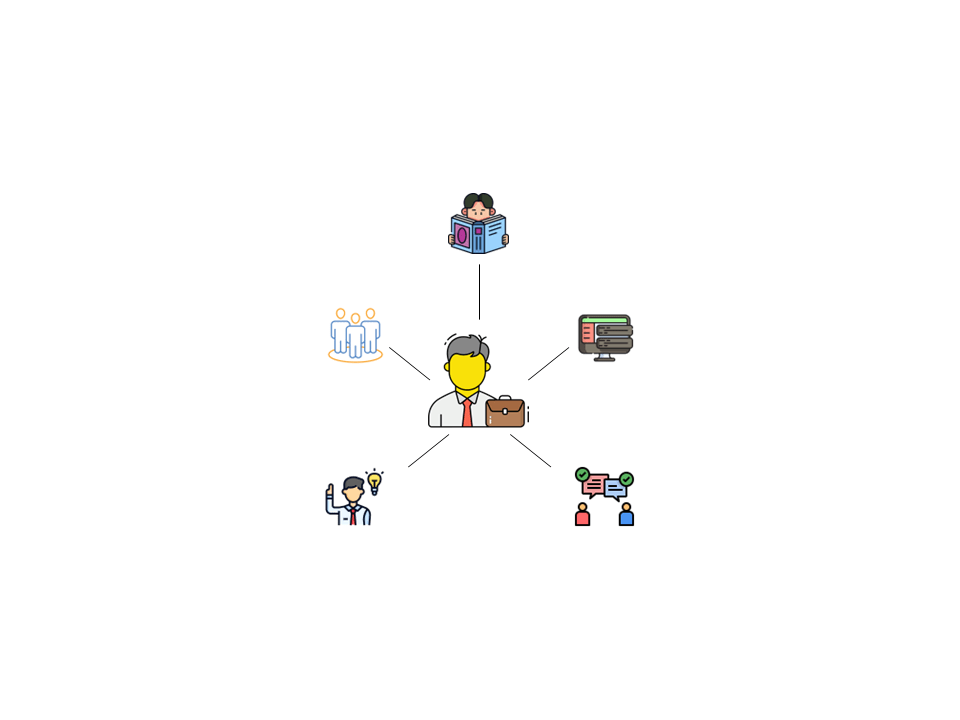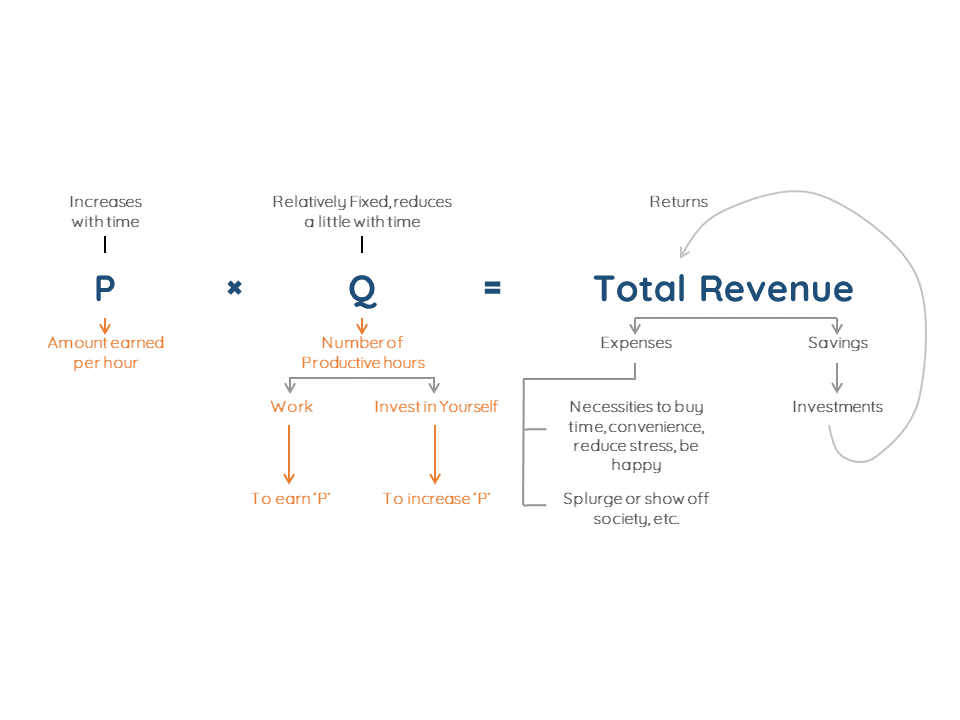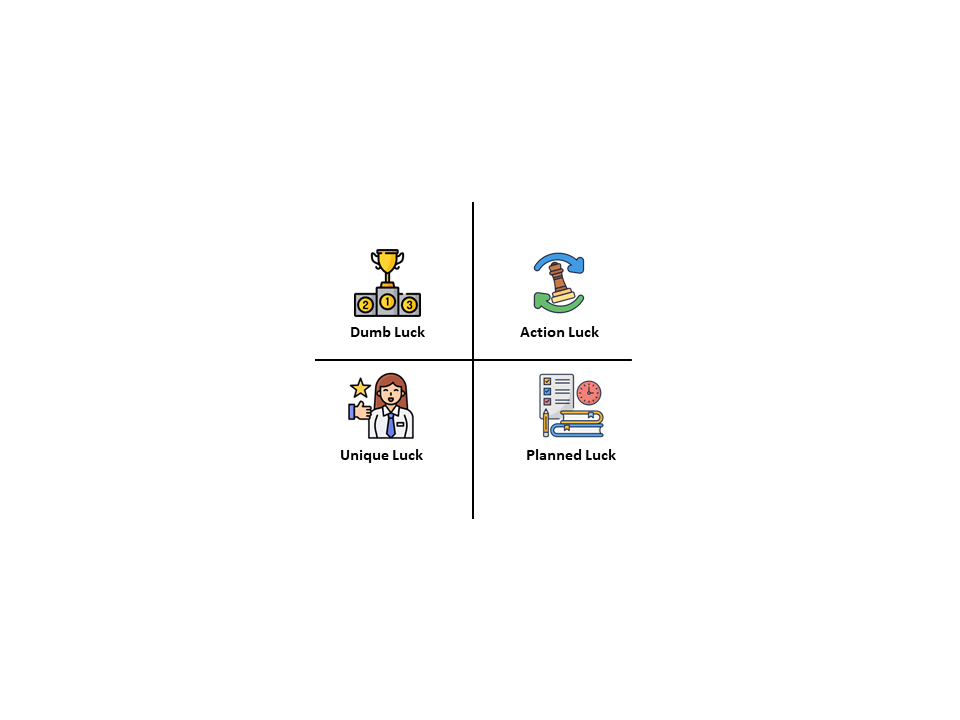Price
-The price we earn per hour is generally low in the initial years
-The initial price depends primarily on our education and basic skill set
-It increases over time as we gain experience, mature and also as and if we acquire skills while working
Quantity
-The number of productive hours is relatively fixed with a max 24 hours/day(impractical, of course)
-Declines as we grow older due to a drop in our energy levels and/or as we accumulate wealth we tend to spend more time on leisurely activities.
-In the beginning years to learn, experience, and to earn money (Since ‘P’ is low), we work more hours But sufficient hours are needed to learn in order to increase ‘P’.
-As ‘P’ increases, people become complacent – reduce the learning hours significantly – find frivolous ways to waste both time and money and therefore hit a plateau.
Total revenue
-Lower in the beginning years
-Increases over time if you can increase ‘P’ and ‘Returns’
-Hence manage your time and savings prudently
Expenses
Social media has taken consumerism to another level (Ironically, an influencer’s post about decluttering could be sponsored by some useless product). Be careful to spend on what makes you happy and spend on things you can use to optimize time and increase your productivity.
Savings
-Shall be very low in the beginning years
-The problem arises when people save the same proportion of the increase in their income. For example, if your current income is 100 and you save 20. When your income increases by 30, you do not save only 20% of 30 = 6, but probably 70-80% of 30. Increase your standard of living slowly so that you are able to grow sustainably.
Returns
– Many wannabe ‘stock traders’ and ‘investors’ start focusing on their investments instead of their core profession/business. One assumes that by superficial analysis one can outperform the markets or the managers and the job is anyways going to pay ‘P’. The problem is that you are much better off spending your time ‘Q’ in focusing and improving yourself to earn a higher ‘P’ than to enhance the returns on your investments. Even if you could hypothetically be able to generate an extra return of a couple of percent, it would be far more fruitful if you focus on your core work profile, excel in it, rise quickly, increase your total revenue and thereby total savings and investment. But quite a few end up exhibiting a lot of biases in their decision making.




